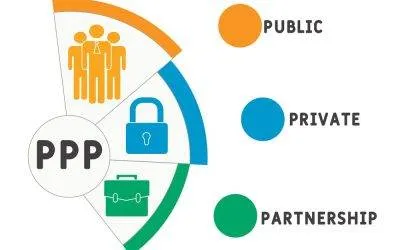Sales Tax on Goods in Pakistan
Sales tax in Pakistan has a rich history dating back to the time of partition. Initially administered at the provincial level in Punjab and Sindh, it became a federal subject in 1948 under the General Sales Tax Act 1948. Currently, the regulation and imposition of Sales tax on goods is carried out through the Sales Tax Act 1990 (“the Act”).
Federal Sales Tax: Key Features
Sales tax in Pakistan follows a Value Added Tax (VAT) system. It is an indirect tax applicable to the consumption of goods across the entire supply chain, including importers, manufacturers, wholesalers, and retailers, with certain exceptions. This multi-stage tax is levied on:
- Taxable supplies by registered persons for any taxable activity
- Goods imported into Pakistan.
The system employs tax credits (input tax adjustment) to shift the tax burden onto the final consumer while relieving intermediaries of tax liabilities.
Tax Rates
Sales tax in Pakistan is typically charged at a standard rate of 18%. An additional 4% (referred to as further tax) is applied when goods are supplied to unregistered persons. However, further tax exemptions exist for specific categories, including essential commodities and certain supplies.
Specified Rates
The Federal Board of Revenue (FBR) can set lower or higher rates for specified items. Some examples include different tax rates for motor vehicles, personal computers, and electric vehicles.
Fixed Rates Based on Capacity/Quantity
The FBR has the authority to levy sales tax on a fixed basis, considering the capacity or quantity of goods, rather than their value. For instance, SIM card activation, mobile phones, and bricks have fixed tax rates based on specific criteria.
Sales Tax on Export-Oriented Items
Sales tax on five export sectors (Textile, Carpets, Leather, Sports, and Surgical Goods) for local supplies is set at the standard rate of 18%. However, certain conditions apply for tax rate reductions in specific cases, such as integrated supply chains.
Third Schedule Items
Goods falling under the Third Schedule of the Act are subject to a manufacturer’s sales tax rate of 18% based on the manufacturer’s recommended retail price. Wholesalers and retailers then charge the same amount of sales tax to their customers.
Liability to Pay Sales Tax
The liability to pay sales tax depends on the type of transaction:
- For supply of goods, the person making the supply is liable.
- For goods imported into Pakistan, the importer is liable.
GST Exemptions and Incentives
Zero Rated Supplies: Zero-rated supplies are subject to sales tax at a zero rate. Exported goods fall under this category, allowing suppliers to credit/adjust the input tax they have paid.
Exempt Supplies: Exempt supplies are outside the scope of sales tax and are not subject to it. They include various items such as live animals, certain books, and machinery for Export Processing Zones, among others.
Input Tax Adjustment:
Input tax is generally not admissible for goods and services unrelated to taxable supplies, personal or non-business use, goods used in immovable property, vehicles, and more. There’s also a restriction on input tax adjustment, with a 90% limit on input tax adjustment against output tax for a particular tax period.
Exceptions: Certain entities, like oil marketing companies, fertilizers manufacturers, and telecommunications services, are exceptions to the 90% limit on input tax adjustment.
The tax landscape in Pakistan is intricate and subject to change, so it’s crucial to stay updated with the latest regulations and consult with tax experts for specific advice.

Let’s connect and discover how we can help your business thrive

Why Choose Us?
- Expertise: With years of experience in the field, we have developed a strong expertise in various domains, including accounting, taxation, auditing, and corporate advisory.
-
Client-Centric Approach: We believe in building long-term relationships with our clients based on trust, integrity, and transparency.
-
Comprehensive Services: Whether you are a small business owner, an established corporation, or an individual seeking tax advice, we offer a wide range of services to cater to your needs. From tax planning, audit,corporate adviosry and compliance to financial statement preparation, our holistic approach ensures that all aspects of your financial well-being are taken care of.
-
Local Market Knowledge: Being a local firm, we have an in-depth understanding of the Pakistani market dynamics, regulations, and cultural nuances. This local expertise allows us to offer valuable insights and guidance that can give your business a competitive edge.

Expert insights and industry news
Public-Private Partnerships (PPPs) in Pakistan: A Catalyst for Development
Public-Private Partnerships, often abbreviated as PPPs, are collaborative agreements between the government and private sector entities.
World Bank Initiatives in Pakistan
The World Bank is an international financial institution that provides financial and technical assistance to developing countries worldwide
Unlocking Pakistan’s Infrastructure Potential
Pakistan’s economy has been on an upward trajectory in recent years, and it offers a strategic location for trade due to its proximity to China, India, and Central Asia.
About Us
Usman Rasheed & Co Chartered Accountants is a leading financial advisory and audit firm in Pakistan, having offices in Islamabad, Quetta, Lahore, Karachi, Peshawar & Gilgit. The firm is providing Audit, Tax, Corporate, Financial, Business, Legal & Secretarial Advisory services and other related assistance to local and foreign private, public and other organizations working in Pakistan




